Description of Taste and Flavor of Brazilian Coffee introduction to the grading system of Coffee varieties in Brazil
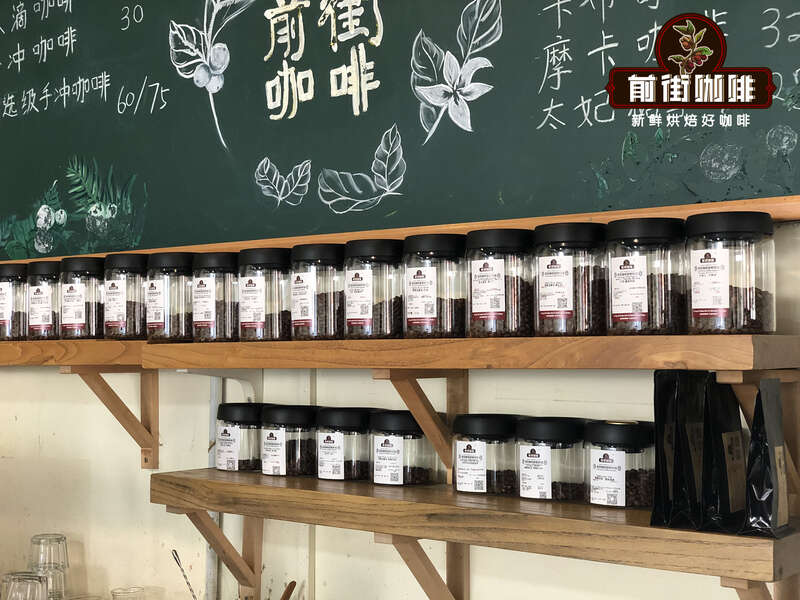
Professional coffee knowledge exchange more coffee bean information please follow the coffee workshop (Wechat official account cafe_style)
Among the regular customers on the front street, they often talk about which cup of coffee tastes better and which domestic coffee is of better quality. Some guests think that Mantenin, the gold of Indonesia's PWN Company, is the best; some people like the coffee beans processed with Costa Rican honey, such as the musician series coffee in front of the street, and some guests like the Colombian Flower Moon Night and Rose Valley in front of the street. Everyone thinks that the quality of Brazilian coffee is not very good.
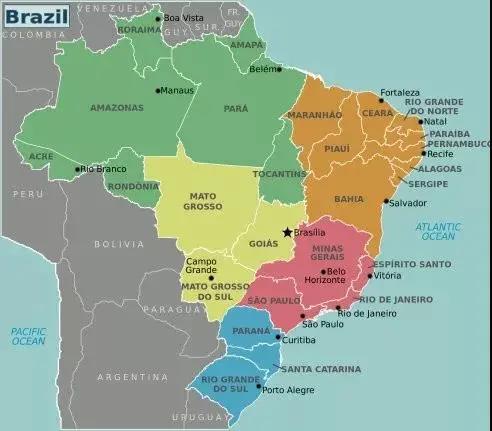
So, what Qianjie wants to introduce to you today is coffee from Brazil. Brazilian coffee has always been regular, can not be very special, but you can not say that Brazilian coffee is not good, it is an authentic cup of coffee. Brazilian coffee does not have the unique herbal flavor of Indonesia and does not have the lemon and citrus flavours of Essex plus Chevy, but the output of Brazilian coffee in global exports is very large, ranking among the top three in the world.
The main varieties of Brazilian coffee are bourbon, New World and Kaduai. Like the yellow bourbon, it is only grown in Brazil, like the coffee beans of the Brazilian queen's manor on the street, and the variety is yellow bourbon. Bourbon and iron pickup are both older varieties, but Brazil has a higher bourbon yield, round beans, sour and thick berries, and a very creamy flavor, but bourbon has poor disease resistance.
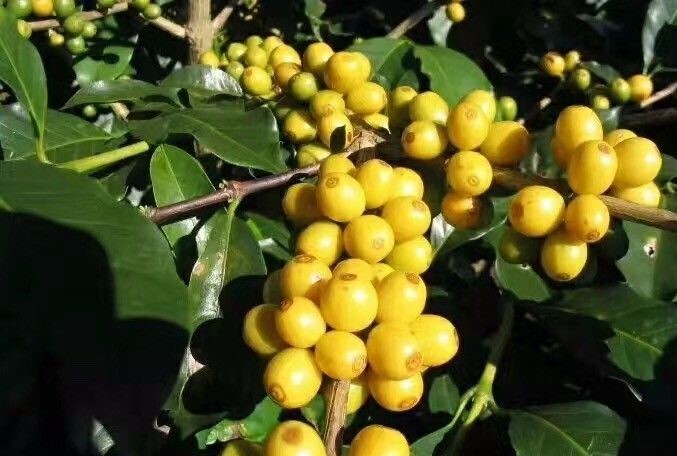
Of course, as mentioned in the previous article on Qianjie, the flavor of coffee is affected by many factors, such as topography, altitude and so on. The flavor of Brazilian coffee is largely related to its terrain. The terrain of Brazil is relatively flat, with plateaus of more than 500 meters and plains below 200 meters. Because altitude has a great influence on coffee beans. Of course, the higher the altitude, the higher the density and hardness of beans, which is conducive to the storage and formation of coffee flavor.
Just as Colombian coffee is grown on mountain slopes more than a kilometer high in altitude and has a large temperature difference between day and night, it is conducive to the accumulation of sugar, so Colombian nuts and chocolates are very rich and more obvious than Brazilian coffee in America. However, like the Brazilian red fruit in front of the street shelf, in addition to the flavor of nuts and chocolate, there is also the flavor of peanuts and cream that are not found in Colombia.
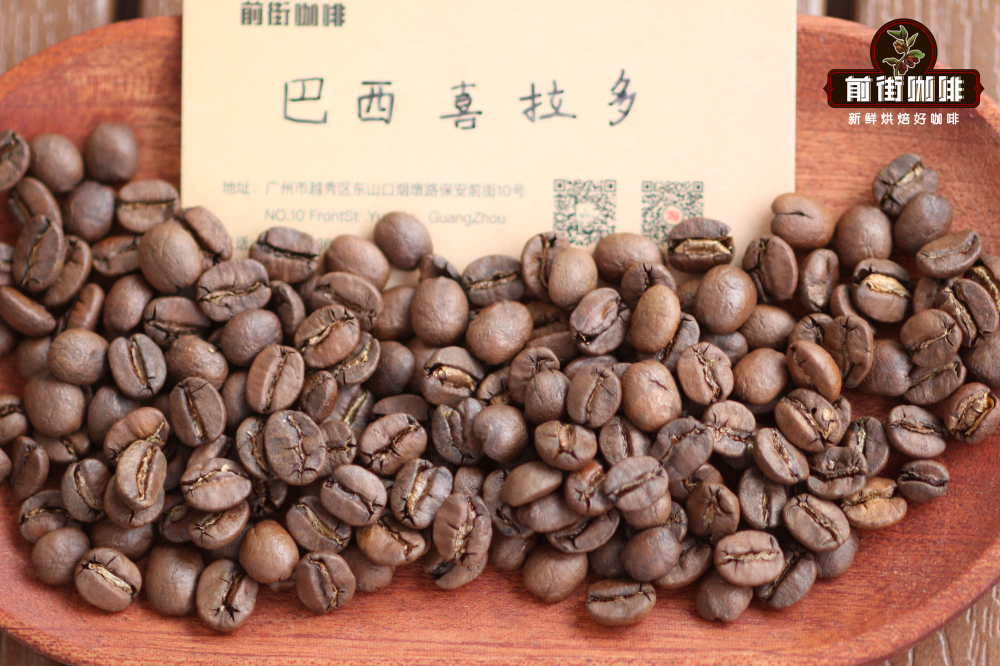
Coffee cultivation in Brazil began in 1720, such as Minas Gerais, Sao Paulo, Bahia and Esp í rito Santo, which are among the most important for Brazil because they account for 90% of Brazil's national exports. Qianjie learned that the elevations of the Syrador and South Minas producing areas in Minas Gerais are higher than those in other producing areas in Brazil, so the coffee produced is of better quality. For example, the northern part of Espirito Santo is relatively low above sea level, which is not conducive to the formation of coffee flavor, so commercial Robusta beans are grown.
Qianjie has talked about the treatment of coffee in many articles, because the production of coffee in Brazil is so large that the general washing method can not support the treatment of coffee production in Brazil, so Brazil has created a half-sun method. They remove defects and floating beans through the sink, use machines to remove the peel and pulp, and then retain the pectin to dry directly or put it in the drying room to dry. Compared with washing treatment, half-sun saves water and labor, which also makes the quality of Brazilian coffee a big leap forward, reversing years of rough criticism of Brazilian coffee.
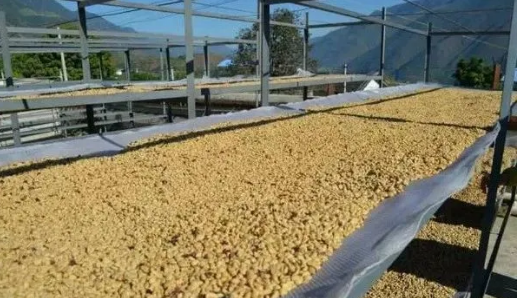
Qianjie also learned that if the half-sun is not handled well, it will produce an earthy smell when drying the coffee fruit, or if it is not roasted well, it will magnify the earthy smell. This will make the baker pay great attention to the firepower and temperature during the baking process. For example, when the Qianjie roaster is roasting the Queen's Manor of Brazil, due to the use of sun treatment, the water content of this coffee raw bean will be lower, which will make the coffee raw bean absorb heat in the baking process. Qianjie roasters pay attention to firepower and temperature in the oven, and so on.
When the baristas in the front street tested the beans in the cup, they found that the beans contain strong nutty flavor, the back section has obvious chocolate flavor, and the whole is relatively round. It is a coffee bean that is very representative of the overall characteristics of Brazilian coffee. So don't underestimate Brazilian coffee beans. Brazil's Queen Manor is well-known. It belongs to the Carvalho Dias family Coffee family and is the leader of Brazilian coffee. It has been promoting the development of Brazilian boutique coffee. According to Qianjie, it has won prizes in Brazilian coffee competitions all year round, while the coffee produced by other Brazilian estates is of mediocre quality.

Like the coffee beans produced in other parts of Brazil, the flavor is relatively insipid, without too much bitterness and sour taste, so it is very suitable for blending. Brazilian coffee beans are also used in Qianjie to make a bold attempt. Brazilian coffee beans are used in the boutique blending of Qianjie. Brazilian coffee beans are matched with Colombian coffee beans according to 7:3. The overall blending of this Italian coffee is very peaceful, rich in oil and smooth in entrance, so it is very popular with Qianjie guests.

In the eyes of some Brazilian growers, if sugar cane, corn and other cash crops make more money than coffee, they may not grow coffee, and they do not quite understand the so-called concept of "boutique coffee." on the one hand, they seldom pick coffee fruits by hand, which are usually harvested by machines, and the agricultural management of Brazilian coffee has basically been mechanized. Brazilian coffee is generally a "pick first and then pick" attitude actually makes the quality of coffee quite uneven. However, this business model has also saved a lot of labor costs.
However, Qianjie believes that Brazil, as a big coffee exporter, cannot generalize Brazilian coffee. There are also many boutique coffee lovers in Brazil. Coffee beans produced by estates such as Queen's Manor are very popular, so we should look at Brazilian coffee from a long-term perspective.
For more boutique coffee beans, please add private Qianjie coffee on Wechat. WeChat account: kaixinguoguo0925
Important Notice :
前街咖啡 FrontStreet Coffee has moved to new addredd:
FrontStreet Coffee Address: 315,Donghua East Road,GuangZhou
Tel:020 38364473
- Prev

The characteristics of Panamanian coffee beans and the introduction of each producing area.
Please follow the Coffee Workshop (Wechat official account cafe_style) Panama has been among the best coffee producers in the world since three years ago, which surprises countries that have been at the vanguard of developer production for many years. Panamanian coffee is mainly produced in the west near the Costa Rican border, producing the best washed coffee. Compared with those planted at low and middle elevations
- Next

The current situation of Hawaiian Kona coffee cultivation, why is Hawaiian Kona coffee so expensive?
For information, please pay attention to Coffee Workshop (Wechat official account cafe_style) the trade wind blows the only coffee-producing state in the United States, the Hawaiian Islands is a perfect coffee-growing area, and the Kona coffee beans produced are internationally renowned and regarded as one of the best coffees in the world. Volcanic soil and tropical climate, supplemented by slight humidity and regular afternoons
Related
- Does Rose Summer choose Blue, Green or Red? Detailed explanation of Rose Summer Coffee plots and Classification in Panamanian Jade Manor
- What is the difference between the origin, producing area, processing plant, cooperative and manor of coffee beans?
- How fine does the espresso powder fit? how to grind the espresso?
- Sca coffee roasting degree color card coffee roasting degree 8 roasting color values what do you mean?
- The practice of lattes: how to make lattes at home
- Introduction to Indonesian Fine Coffee beans-- Java Coffee producing area of Indonesian Arabica Coffee
- How much will the flavor of light and medium roasted rose summer be expressed? What baking level is rose summer suitable for?
- Introduction to the characteristics of washing, sun-drying or wet-planing coffee commonly used in Mantenin, Indonesia
- Price characteristics of Arabica Coffee Bean Starbucks introduction to Manning Coffee Bean Taste producing area Variety Manor
- What is the authentic Yega flavor? What are the flavor characteristics of the really excellent Yejasuffi coffee beans?

